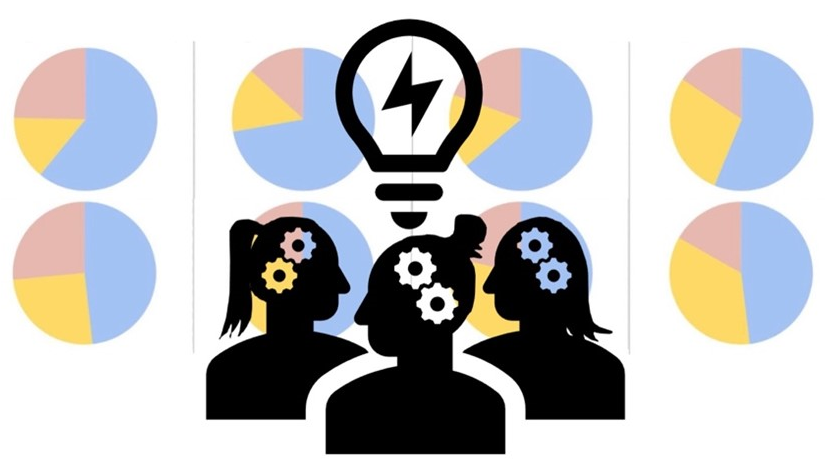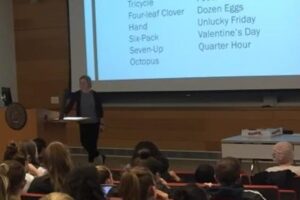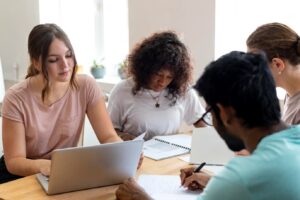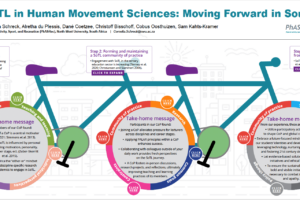
Blog: Benefits of Community: Students-as-Partners Work by an Undergraduate Student, a Graduate Student, and a Faculty Member
By Anna Piotti, Elizabeth DeFelice, and Carrie Jackson
The Pennsylvania State University
It was the end of a Zoom meeting, at the end of a long day, in the middle of the very challenging Fall 2020 semester when Elizabeth sighed, “I think that having a sense of community is hard.” Carrie and Anna both nodded; we were all experiencing that feeling as we individually navigated myriad uncertainties. There was a global pandemic, national groups were battling for rights and power, and our personal and professional lives were filled with unknowns. Yet the three of us, meeting weekly online, were coming to understand how productive it was to share with, listen to, and learn from one another. We were building a community, and we were benefiting from both this process (e.g., developing supportive interaction practices and allowing flexibility in institutional roles of “student” and “faculty”) and the outcomes of this process (e.g., developing teaching materials and honing research skills). Through sharing our respective expertise, attending to critical feedback, and providing another space to explore, we came to embody two notions: we are all learners and we are all teachers. We hope our article empowers others to see these traits in themselves too.
As we share our students-as-partners, community-of-practice work with the world, we reflect on the benefits of community. It might be “hard” to build, but that building is half of the equation. We encourage readers to consciously listen to new voices and reflect on their own experiences, to find or establish connections with those around them, and to start the process of co-constructing new knowledge and de-constructing institutionalized hierarchies. Our research supports both the students-as-partners and community-of-practice literature: a balance of different and shared perspectives working together becomes more than the sum of its parts.
We hope our work inspires faculty to enlist their students in SoTL research projects, perhaps sparking creative solutions or innovations. The benefits of community are numerous.
To read the full TLI article, please visit here.




